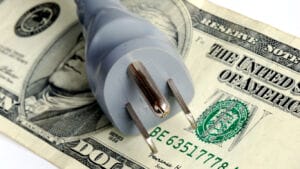Your credit score is more than just a number—it’s a key to financial freedom. Whether you’re applying for a loan, renting an apartment, or securing a better credit card with cashback rebates, a good credit score in Canada opens doors. But how do you build and maintain it? Let’s break it down into easy steps.
MORE NEWS: 12 Arizona companies make Healthiest 100 Workplaces in America list
What is a Credit Score?
A credit score is a three-digit number that represents your creditworthiness. In Canada, it ranges from 300 to 900, with higher scores being better. Lenders, landlords, and even some employers use this score to decide if they can trust you financially.
Why is Your Credit Score Important?
- Better Loan Approval Chances: Lenders are more likely to approve your applications.
- Lower Interest Rates: A good credit score can qualify you for lower rates, saving you money.
- Access to Premium Credit Cards: High scores unlock cards with rewards, including cashback rebates.
How is Your Credit Score Calculated?
Your credit score is influenced by:
- Payment History (35%): Do you pay your bills on time?
- Credit Utilization (30%): How much of your available credit are you using?
- Credit History Length (15%): How long have you been using credit?
- Types of Credit (10%): Do you have a mix of credit products like credit cards and loans?
- New Credit Inquiries (10%): How often do you apply for new credit?
How to Build a Good Credit Score in Canada
1. Pay Your Bills on Time
Timely payments are the foundation of a strong credit score. Whether it’s your credit card bill, utility payment, or car loan, always pay at least the minimum due by the deadline.
Pro Tip: Set up automatic payments to avoid late fees.
2. Use Credit Cards Responsibly
Credit cards are a great tool for building credit, but misuse can hurt your score.
- Keep Balances Low: Aim to use less than 30% of your credit limit. For example, if your limit is $5,000, try to keep your balance under $1,500.
- Pay in Full When Possible: Avoid interest charges by paying off your balance every month.
Bonus: Many credit cards offer cashback rebates on everyday purchases. Use these rewards to save while building credit.
3. Limit Hard Credit Inquiries
Each time you apply for a loan or credit card, the lender checks your credit report. This is called a “hard inquiry,” and too many of these can lower your score.
Solution: Only apply for credit when you need it.
4. Check Your Credit Report Regularly
In Canada, you can access your credit report for free through Equifax or TransUnion. Reviewing it ensures there are no errors, like incorrect balances or accounts you don’t recognize.
Tip: If you find a mistake, report it immediately to the credit bureau.
5. Build a Credit History
The longer you’ve been using credit responsibly, the better your score. If you’re just starting, consider getting:
- A Secured Credit Card: This requires a deposit but helps establish credit.
- A Low-Limit Credit Card: Use it for small, regular purchases like groceries or gas and pay it off monthly.
6. Diversify Your Credit Mix
Having a variety of credit types (credit cards, installment loans, etc.) shows lenders you can handle different financial responsibilities.
Example: If you already have a credit card, taking out a small personal loan can add diversity.
7. Avoid Closing Old Accounts
The age of your credit accounts affects your score. Closing an old account shortens your credit history.
Tip: Keep older accounts open, even if you don’t use them often, as long as they don’t have annual fees.
How Cashback Rebates Can Help While Building Credit
Choosing a credit card with cashback rebates can make your journey to a good credit score more rewarding.
What are Cashback Rebates?
These are rewards you earn as a percentage of your spending. For example, if your card offers 2% cashback on groceries, you’ll get $2 back for every $100 spent.
How to Maximize Cashback Rebates:
- Pay Off Your Balance Monthly: Avoid interest charges that cancel out your rewards.
- Use the Card for Everyday Purchases: Gas, groceries, and utility bills are great categories for earning rewards.
- Combine with Promotions: Some cards offer bonus cashback in specific months or categories.
How Long Does it Take to Build a Good Credit Score?
Building a good credit score takes time and consistency. If you follow these tips, you can start seeing improvements in as little as 6 to 12 months.
Want to Boost your Website Authority? Consider HARO link-building agency.
Final Thoughts
Building a good credit score in Canada doesn’t have to be complicated. By paying bills on time, using credit responsibly, and taking advantage of cashback rebates, you can improve your financial health while earning rewards.
Start small, stay consistent, and watch your credit score grow!




